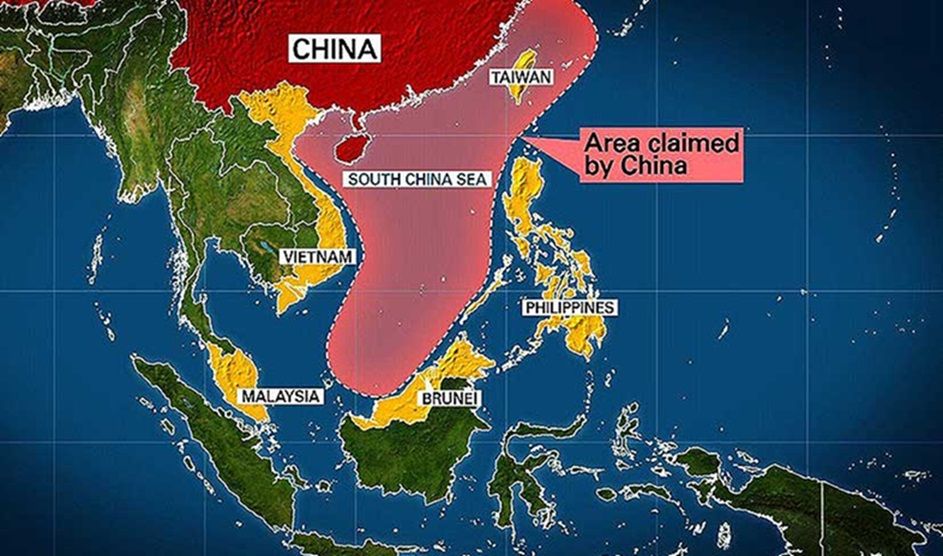
The South China Sea remains a flashpoint of geopolitical tension, with multiple nations, including China, Vietnam, the Philippines, Malaysia, Brunei and Taiwan, vying for control of territory and resources. At the heart of this conflict is China’s claim to a vast portion of the sea under its disputed “nine-dash line,” a claim that overlaps with several countries in the region.
This disputed area includes important trade routes, islands, and abundant natural resources such as oil and gas, especially in areas such as the Spratly Islands. The dispute often results in diplomatic standoffs, tense maritime incidents, and occasional clashes, such as the recent standoff between China and the Philippines near the Second Thomas Sandbar.
Although Indonesia is not a claimant state, the South China Sea is of enormous importance to its economy, security and strategy. Given Indonesia’s archipelagic geography and its dependence on international trade routes that traverse the South China Sea, any disruption could severely damage its trade and economic growth. Moreover, with abundant natural resources such as fisheries and potential oil and gas reserves at stake, securing access to these areas is vital to Indonesia’s energy security.
Despite its position outside major territorial disputes, Indonesia’s Exclusive Economic Zone (EEZ) extends into the disputed waters. Any incursion by a foreign power, especially China, poses a direct threat to Indonesia’s territorial integrity. Moreover, the possibility of a wider conflict involving its neighbors could drag Indonesia into the conflict, raising significant security concerns.
In this complex geopolitical landscape, Indonesia plays a delicate role. Strategically, it seeks to balance its economic ties with China while upholding respect for international maritime laws, particularly the United Nations Convention on the Law of the Sea (UNCLOS). As a regional leader in the Association of Southeast Asian Nations (ASEAN), Indonesia also strives to maintain stability, promote peaceful resolutions and foster maritime cooperation, ensuring that the balance of power in Southeast Asia is not disturbed by China’s growing influence.
Indonesia’s role in ASEAN
Indonesia’s role within ASEAN has been crucial in navigating the South China Sea dispute. As one of the largest and most influential members, Indonesia promotes regional cooperation and peaceful resolution through diplomacy. Its emphasis on promoting a rules-based order, anchored in UNCLOS, has been key to moderating tensions and advancing ASEAN’s discussions with China.
Indonesia’s leadership was especially evident in its efforts to push forward the long-discussed Code of Conduct (COC) between ASEAN and China. This framework, designed to guide behavior in disputed waters, has gained momentum under Indonesia’s leadership. In 2023, during its ASEAN chairmanship, Indonesia achieved a significant milestone, approving the second reading of the draft COC framework, which sets out guidelines for managing disputes in the region.
Efforts to strengthen maritime cooperation
Beyond diplomatic negotiations, Indonesia has made concrete efforts to promote maritime cooperation, recognizing that confidence-building measures are essential to reducing tensions. Indonesia actively participates in joint patrols, military exercises such as AMEX, and initiatives focused on protecting the marine environment from pollution and overfishing. These collaborative efforts foster trust and reduce the likelihood of conflict, while emphasizing the need for collective management of shared resources.
In the scientific arena, Indonesia fosters cooperation in research on the South China Sea, promoting joint projects that enable peaceful exploration of the region’s potential. By positioning itself as a neutral player in the South China Sea, Indonesia seeks to foster a shared interest in the region’s stability and resources.
The importance of UNCLOS in conflict resolution
The legal framework provided by UNCLOS plays a pivotal role in Indonesia’s approach to the South China Sea. UNCLOS sets out the rules for territorial claims, resource exploitation and freedom of navigation, giving Indonesia a basis to defend its rights in the EEZ while promoting peaceful resolution of disputes.
In the landmark 2016 ruling by the Permanent Court of Arbitration, China’s broad claims under the nine-dash line were deemed invalid, reaffirming the principles of UNCLOS. Although China rejected the ruling, the decision has served as a legal reference for countries such as Indonesia to support their maritime claims and challenge expansive interpretations of China’s historic rights.
Indonesia’s commitment to respecting UNCLOS, along with its diplomatic efforts within ASEAN, is seen as a stabilizing force in the region, offering a path toward resolving disputes through legal means rather than military escalation.
Challenges and limitations of the Indonesian approach
Despite Indonesia’s diplomatic efforts and leadership in ASEAN, its approach is not without challenges. One significant limitation is the slow decision-making process within ASEAN, which relies on consensus. This can lead to frustration when dealing with a powerful and assertive actor like China, which is not as keen on finding a quick resolution. Moreover, Indonesia’s neutrality, although a strength in fostering dialogue, can be seen as a weakness by other claimant states seeking more decisive action against China’s assertiveness.
Moreover, the increasing militarization of the South China Sea poses a challenge to Indonesia’s non-confrontational approach. China’s land reclamation projects, which have transformed reefs into military outposts, increase the risk of escalation, and Indonesia’s efforts to promote peaceful resolutions must confront the reality of a regional arms race.
Note: This is a summary and republished article from the «Defence, Research and Studies» media outlet through a cooperation agreement between both parties for the dissemination of journalistic content. Original link.
Frank Felix is pursuing his post-graduate degree in International Relations from Amity Institute of International Studies, Noida.
Source: https://reporteasia.com/opinion/2024/09/05/iniciativas-indonesia-conflicto-mar-china-meridional/

